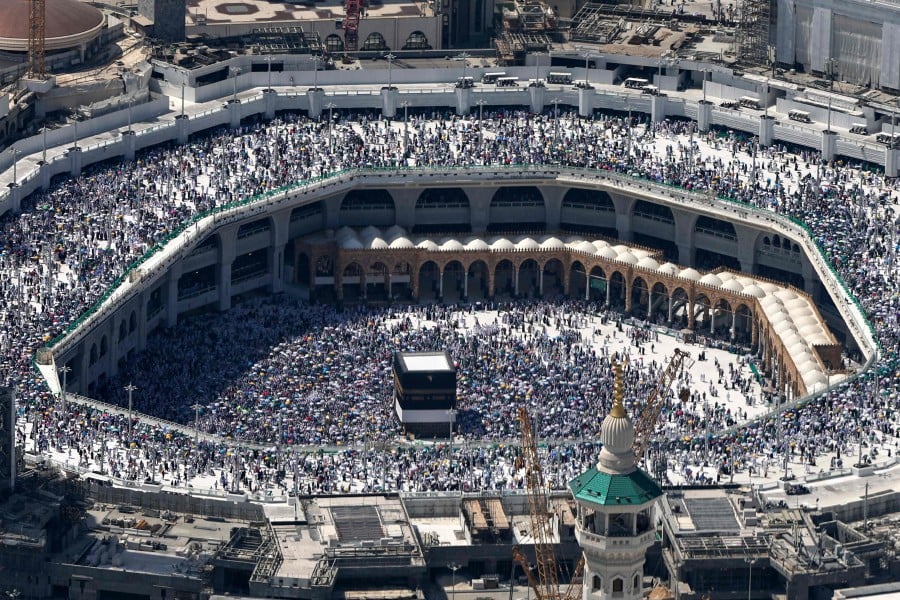MAKKAH: A 27-year-old pilgrim from Betong, Sarawak, could hardly believe it and thought it was a joke when he was told about his father's death while they were both in the holy land.
Fazrihin Bawi, the youngest of eight siblings, came to perform Haj with his late father, Bawi Solek, 74, and his mother, Sepot Ujang, 71.
He only started to accept the news when the Maktab 79 head, Al'Amin Jaminon, told him that he liked to joke but never about death.
"When Al'Amin hugged me and told me again that my father was gone, I was shocked and realised it was true.
"I said, 'How could my father be gone?' Al-Amin then hugged me tightly and said again, 'This is your father's path,'" he said.
Fazrihin said his late father once told him that he wanted to die in the Holy Land after returning from performing Umrah in 2016.
He said his late father indeed aspired to die in Makkah.
Describing the final moments with his late father, Fazrihin said he noticed that his father was sweating profusely even in an air-conditioned room, refusing to take medicine, and not wanting to eat because he had no appetite.
"He forced me many times to accompany him to perform Haj together.My sister was supposed to go, but he insisted that I go, and he got angry because I didn't want to follow him. I couldn't go because of work constraints.
"After Tabung Haji called, saying they needed a male companion, I finally agreed, did a health check-up, and made a passport within a week. Then my father seemed happy," he added.
However, in the final days, his father became quieter than before. Even at the airport, he showed a difference when he hugged his eldest daughter.
"He hugged my older sibling tightly, which puzzled me because dad usually didn't act that way. During the flight, he was also quiet, and when his friend arrived and asked him questions, he only gave one-word answers and didn't chat much," he said.
Fazrihin said the last time he and his father were together was when they were going to throw pebbles at the jamrah.
"After the Asar prayer, we both went to throw pebbles, and while passing through the first Muassim tunnel, he could still walk and rest to drink water. After moving again in the second tunnel, I felt strange seeing dad limping.
"I told him to stop and rest to drink water, but he refused because he wasn't thirsty, even though the tunnel was very hot at that time," he said.
When his father's body began to shiver, and shortly after, he had difficulty breathing, Fazrihin didn't think twice about looking for a wheelchair but couldn't find one.
He then carried his father for 100 metres, but he seemed to get weaker, so he carried him again and walked another 50 metres before he collapsed.
"I tried to hold him, but he collapsed again, and his breathing seemed increasingly difficult. The police came to help. They asked my father to lie down on an ihram cloth. The Indonesian medical team also tried to help, and by then, my father's pulse had already stopped.
"I ran to find the Malaysian medical team, and they performed cardiopulmonary resuscitation (CPR) until I went to the Jamrah area to ask for emergency help. They performed CPR again, and at that time, my father was still conscious and was taken to a nearby hospital. I was then asked to return to the tent in Mina," he added.
Fazrihin said after receiving the news of the passing of his late father, he was taken to the hospital for body identification, requested for the body to be bathed, and then wrapped in the ihram cloth.
"I accompanied the body for the funeral prayer after the Zuhr prayer at the Masjidil Haram, and then it was buried at the Syuhada Cemetery."


